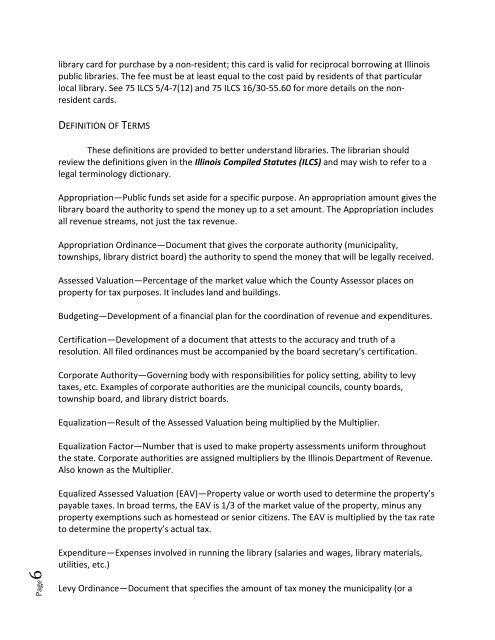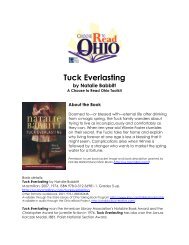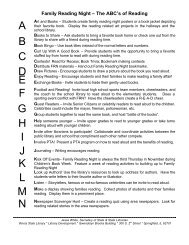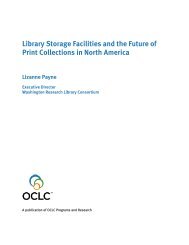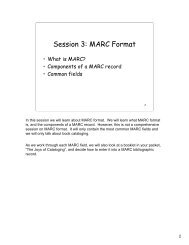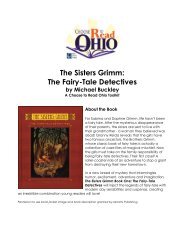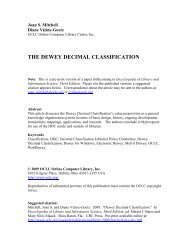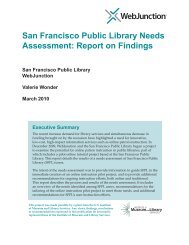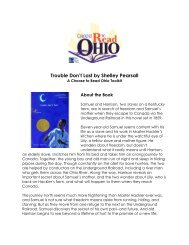Librarian's Helper - Lewis & Clark Library System
Librarian's Helper - Lewis & Clark Library System
Librarian's Helper - Lewis & Clark Library System
You also want an ePaper? Increase the reach of your titles
YUMPU automatically turns print PDFs into web optimized ePapers that Google loves.
Page6library card for purchase by a non-resident; this card is valid for reciprocal borrowing at Illinoispublic libraries. The fee must be at least equal to the cost paid by residents of that particularlocal library. See 75 ILCS 5/4-7(12) and 75 ILCS 16/30-55.60 for more details on the nonresidentcards.DEFINITION OF TERMSThese definitions are provided to better understand libraries. The librarian shouldreview the definitions given in the Illinois Compiled Statutes (ILCS) and may wish to refer to alegal terminology dictionary.Appropriation—Public funds set aside for a specific purpose. An appropriation amount gives thelibrary board the authority to spend the money up to a set amount. The Appropriation includesall revenue streams, not just the tax revenue.Appropriation Ordinance—Document that gives the corporate authority (municipality,townships, library district board) the authority to spend the money that will be legally received.Assessed Valuation—Percentage of the market value which the County Assessor places onproperty for tax purposes. It includes land and buildings.Budgeting—Development of a financial plan for the coordination of revenue and expenditures.Certification—Development of a document that attests to the accuracy and truth of aresolution. All filed ordinances must be accompanied by the board secretary’s certification.Corporate Authority—Governing body with responsibilities for policy setting, ability to levytaxes, etc. Examples of corporate authorities are the municipal councils, county boards,township board, and library district boards.Equalization—Result of the Assessed Valuation being multiplied by the Multiplier.Equalization Factor—Number that is used to make property assessments uniform throughoutthe state. Corporate authorities are assigned multipliers by the Illinois Department of Revenue.Also known as the Multiplier.Equalized Assessed Valuation (EAV)—Property value or worth used to determine the property’spayable taxes. In broad terms, the EAV is 1/3 of the market value of the property, minus anyproperty exemptions such as homestead or senior citizens. The EAV is multiplied by the tax rateto determine the property’s actual tax.Expenditure—Expenses involved in running the library (salaries and wages, library materials,utilities, etc.)Levy Ordinance—Document that specifies the amount of tax money the municipality (or a


